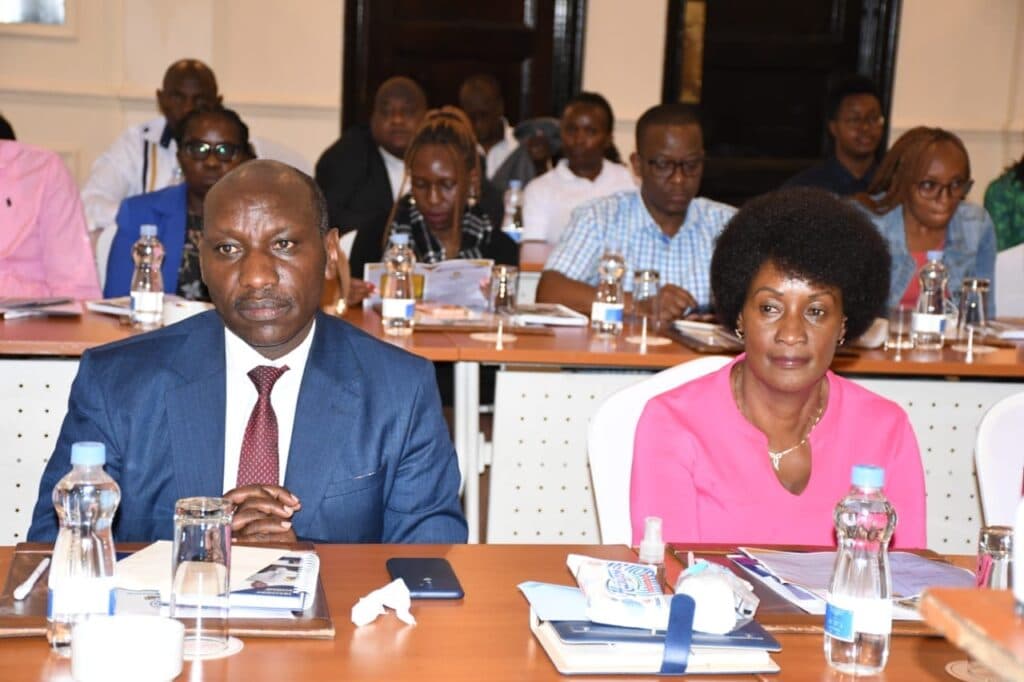We're loading the full news article for you. This includes the article content, images, author information, and related articles.
Over 20,000 junior school intern teachers face an uncertain future as the government's new two-year path to permanent employment sparks protests and legal threats, deepening a severe staffing crisis critical to the Competency-Based Curriculum's success.

A standoff between the Kenyan government and over 20,000 intern teachers is escalating, threatening to destabilize the nation's junior secondary schools ahead of the new academic year. The conflict intensified following a recent declaration by President William Ruto that interns must complete a two-year term before being considered for permanent and pensionable (PnP) employment, a move teachers' associations have labelled a violation of labour rights and a setback for addressing a crippling teacher shortage.
The controversy centres on the government's teacher internship programme, a strategy designed by the Teachers Service Commission (TSC) to plug a severe deficit of educators required for the Competency-Based Curriculum (CBC). According to a report by Usawa Agenda and Zizi Afrique Foundation, Kenya faces a shortage of over 100,000 teachers, with junior secondary schools (JSS) being the most affected. TSC statistics presented to Parliament in April 2025 by Education Cabinet Secretary Julius Ogamba confirmed a national shortfall of 98,461 teachers, with marginalised counties like Mandera, Turkana, and Garissa being the hardest hit.
The situation is compounded by contradictory statements from senior government officials, creating confusion and mistrust among the interns. On Thursday, November 13, 2025, President Ruto, speaking at Kitui State Lodge, gave a firm assurance that interns would be automatically absorbed into PnP terms after two years of service. However, this statement was at odds with earlier remarks from Treasury Cabinet Secretary John Mbadi, who had informed Parliament that funds were allocated to confirm interns by January 2026. Further complicating matters, Education CS Julius Ogamba warned the National Assembly that without additional resources, the ministry might be forced to extend the internship contracts beyond 2025.
This policy uncertainty has fuelled legal challenges. On April 17, 2024, the Employment and Labour Relations Court, under Justice Byrum Ongaya, ruled that the TSC had violated the interns' right to fair labour practices by employing qualified and licensed teachers on internship terms. The court declared the programme illegal. However, the TSC successfully appealed the decision, and on June 12, 2024, Court of Appeal Justices Asike Makhandia, Sankale Ole Kantai, and Ngenye Macharia suspended the order, allowing the internship programme to continue pending a full hearing.
Intern teachers, many of whom earn a stipend of around KSh 17,000 after deductions, argue they perform the same duties as their permanently employed colleagues and that the internship model is exploitative. The Kenya Junior School Teachers Association (KEJUSTA), led by its chairperson James Odhiambo, has rejected the President's two-year directive, describing the scheme as “inhumane” and threatening to return to court. Interns have argued their initial one-year contracts were non-renewable and implied a direct transition to permanent employment.
Major teacher unions, including the Kenya Union of Post-Primary Education Teachers (KUPPET) and the Kenya National Union of Teachers (KNUT), have backed the interns' demands. They have consistently called for the immediate confirmation of all intern teachers to address the staffing crisis that they warn could cripple the CBC system, which requires lower teacher-student ratios for effective implementation.
The ongoing dispute has significant implications for educational quality in Kenya. The JSS level is a critical transition point in the CBC structure, and the persistent teacher shortage and low morale among interns could undermine its objectives. The government maintains that the internship model is a pragmatic approach to gradually absorb the over 300,000 trained but unemployed teachers in the country. To mitigate the shortage, the TSC announced 24,000 new internship vacancies in August 2025, with the recruits expected in schools by January 2026. However, with current interns threatening not to renew their contracts and to down their tools, schools face the prospect of starting the new year with even greater staffing gaps. As the January deadline approaches, pressure is mounting on the government, the TSC, and teacher representatives to find a sustainable resolution that ensures stability for the education system and fair labour practices for its educators.
Keep the conversation in one place—threads here stay linked to the story and in the forums.
Sign in to start a discussion
Start a conversation about this story and keep it linked here.
Other hot threads
E-sports and Gaming Community in Kenya
Active 9 months ago
The Role of Technology in Modern Agriculture (AgriTech)
Active 9 months ago
Popular Recreational Activities Across Counties
Active 9 months ago
Investing in Youth Sports Development Programs
Active 9 months ago
Key figures and persons of interest featured in this article